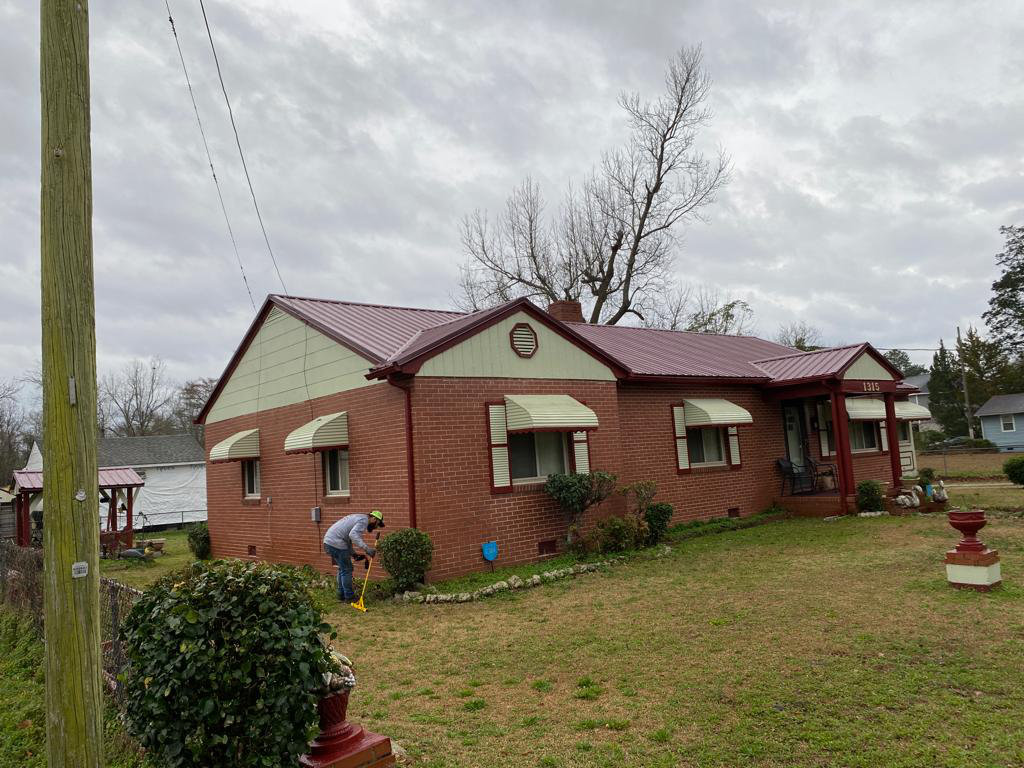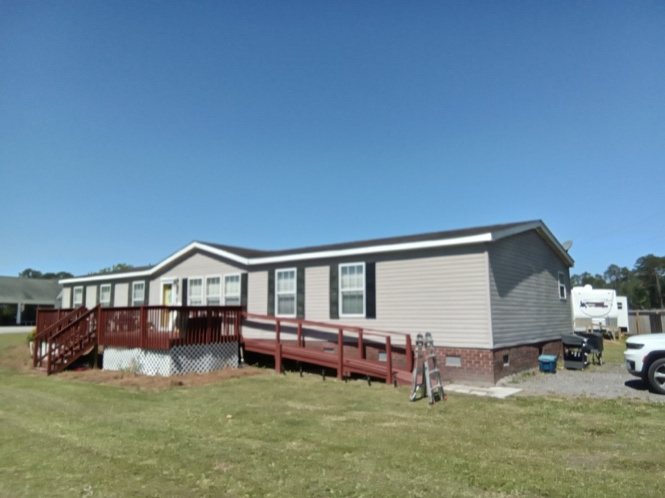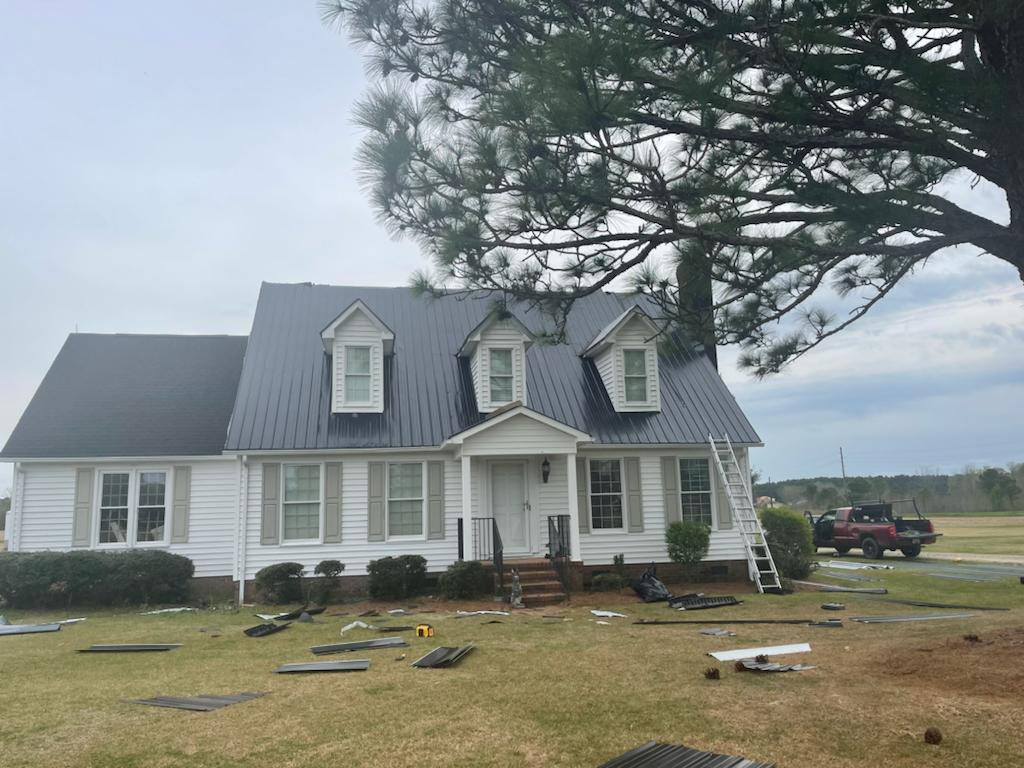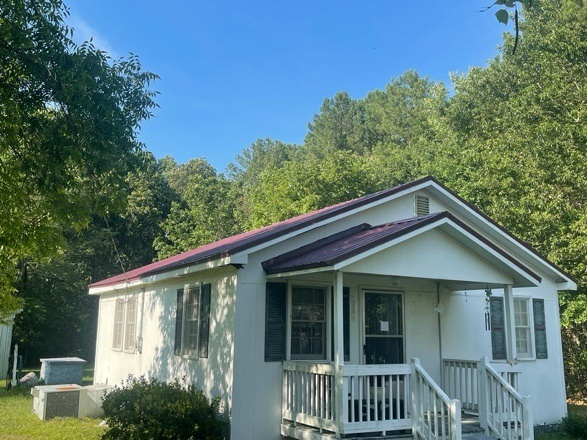In 1903, the introduction of asphalt shingle roofs marked a significant advancement in the roofing industry, offering a more durable and cost-effective alternative to traditional wood shingles and clay tiles.
However, as time progressed, asphalt shingles saw a decline in their appeal due to the emergence of roofing materials that offered greater longevity, strength, and eco-friendliness, such as metal roofing.
Today, metal roofing has experienced a remarkable surge in popularity and has become the second most favored roofing choice across the nation. Metal roofing not only provides the aesthetic appeal akin to asphalt shingles but also offers remarkable durability, extended lifespan, and outstanding energy efficiency, among various other advantages.
While the initial cost of metal roofing may be marginally higher than that of asphalt shingles, it frequently proves to be a superior long-term investment, delivering a substantially higher return on investment (ROI).
If you’re currently weighing the options of metal roofing vs. asphalt shingles for your home, this article by James Kenton will provide valuable insights to aid your decision-making process.
1. Cost Comparison
One of the primary factors that influence the choice between metal roofing and asphalt shingles is the cost. Initially, asphalt shingles are the more budget-friendly option. The cost of materials and installation for asphalt shingles is generally lower than that of metal roofing. However, it is essential to look beyond the upfront costs and consider the long-term financial implications.
Metal roofing, while more expensive upfront, tends to have a longer lifespan, which can make it a cost-effective choice over time. Metal roofs can last 50 years or more, compared to the 20-30-year lifespan of asphalt shingles. This means you may need to replace asphalt shingles two or even three times in the same period that a metal roof would likely last. Factor in the ongoing maintenance and potential repair costs for asphalt shingles, and the cost advantage of metal roofing becomes clearer.
Furthermore, metal roofing can save you money on energy bills, as it offers superior insulation and reflects sunlight, reducing your home’s cooling costs. With asphalt shingles, you may need to invest in additional insulation to achieve similar energy efficiency, which can add to your expenses over time.

2. Longevity and Durability
The longevity and durability of a roofing material are crucial factors to consider when investing in your home. Metal roofing has a clear advantage in this category. As mentioned earlier, metal roofs can last 50 years or more, sometimes even up to 70 years, with proper maintenance. They are highly resistant to weather-related damage, such as hail, wind, and snow. Additionally, they do not rot, warp, or develop mold and mildew.
Asphalt shingles, on the other hand, have a shorter lifespan of 20-30 years, and their durability can be affected by environmental factors. They are more susceptible to damage from severe weather conditions, including wind, hail, and UV radiation, which can cause them to warp or break over time. The need for regular maintenance, repairs, and eventual replacements makes asphalt shingles less durable in the long run.
Another aspect of durability to consider is the weight of the roofing material. Metal roofs are lightweight, which reduces the stress on the structure of your home. In contrast, asphalt shingles are heavier, which can put more strain on the building’s framework.
3. Energy Efficiency
Energy efficiency is an increasingly important consideration for homeowners due to rising energy costs and environmental concerns. Metal roofing is known for its excellent energy-efficient properties. It can reflect a significant portion of the sun’s heat, reducing the cooling load on your home during hot summer months. This can lead to lower energy bills and a more comfortable living environment.
Additionally, metal roofing can be installed with cool roof coatings that further enhance its reflective properties. This makes it an excellent choice for homes in hot climates, as it helps to keep the interior cooler without relying heavily on air conditioning.
While asphalt shingles are not as energy-efficient as metal, they can still be improved by using reflective coatings or selecting lighter-colored shingles. Nevertheless, these enhancements may not match the inherent energy efficiency of metal roofing. Moreover, the lower insulation and reflective properties of asphalt shingles may lead to higher heating and cooling costs over time, especially in regions with extreme weather conditions.

4. Environmental Impact
The environmental impact of your roofing choice is a crucial consideration for many homeowners. Metal roofing has several advantages in this regard. Firstly, it is a highly recyclable material, which means that old metal roofing can often be repurposed or recycled rather than ending up in a landfill. Additionally, metal roofing materials are often made from a significant percentage of recycled content, further reducing their environmental footprint.
On the other hand, asphalt shingles have a greater environmental impact. They are typically made from petroleum-based materials and are not as easily recyclable. The manufacturing process of asphalt shingles also generates more pollution and greenhouse gas emissions compared to metal roofing production. This makes metal roofing an eco-friendly option for those concerned about sustainability.
5. Aesthetics and Design Options
The aesthetic aspect of your roofing choice is a matter of personal preference, but it’s worth considering. Metal roofing has come a long way in terms of design options. It is available in a variety of styles, finishes, and colors, allowing homeowners to find a metal roof that complements the architectural style of their home. Whether you prefer a sleek modern look or a more traditional appearance, there’s likely a metal roofing option to suit your taste.
Asphalt shingles also come in various styles and colors, offering homeowners a wide range of choices. However, asphalt shingles may not provide the same level of customization as metal roofing. Their appearance can be influenced by factors such as weather and UV exposure over time, which can lead to color fading and a less appealing appearance.
The Verdict
In the debate between metal roofing and other roofing options, the verdict resoundingly favors metal roofing. The numerous advantages and long-term benefits it offers make it a top choice for homeowners who seek the best roofing solution.

Ready to elevate your roofing game and experience the benefits of top-tier metal roofing? Look no further than James Kenton, the expert metal roofing contractor in Tennessee. His track record of excellence and commitment to quality makes him your go-to professional for all your metal roofing needs. Contact James Kenton today and get started on your journey to superior roofing performance.
